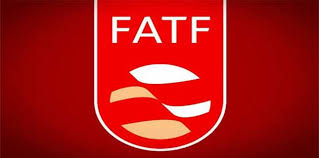Web Desk
Pakistan will be able to implement the new action plan on money laundering in the next 12 months, after the Financial Action Task Force (FATF) decided to keep the South Asian country on the “increased monitoring” list, pending action on one previous item and six new areas, hoped Energy Minister, Hammad Azhar.
Addressing a press conference in the capital Islamabad shortly after the FATF decision on Friday, Azhar stated that the body is not like it was 10 years ago.
He explained that in the FATF, all member countries review one country together, and assured everyone that Pakistan is not in the same position as it was two years ago.
“The importance of FATF has increased significantly in the current situation. [And] FATF wants better monitoring of money laundering,” said Azhar.
The minister further explained that the previous action plan that Pakistan was given was based on counter-terror financing. He added that Pakistan has implemented 26 out of the 27 points, and said that the last point will be implemented as well, providing “3-4 months” as the timeline for completion.
“The previous action plan was for counter-terrorism and the new one is for anti-money laundering,” said Azhar, adding that the anti-money laundering plan will be much easier to tackle than the counter-terrorism one.
The energy minister assured the nation that the federal government would implement the points mentioned in the anti-money laundering plan “in the next 12 months”.
“Pakistan has not been moved out of the grey list but Pakistan’s progress was noted globally,” said Azhar, speaking about the plenary meeting which was held between June 21 and 25 in Paris.
The energy minister said that “Pakistan has implemented the most difficult FATF action plan” and its efforts are being acknowledged the world over today.
“FATF acknowledged that Pakistan implemented 26 out of 27 points. One point is left and we will complete that as well. There is no threat of blacklisting; Pakistan will not be blacklisted, it will be whitelisted,” said the minister confidently.
The Financial Action Task Force has kept Pakistan on its “increased monitoring” list, while also recognising the country’s progress and efforts to combat terror financing, and encouraging it to address as soon as possible “the one remaining CFT-related item”.
Addressing a press conference after the June 21-25 plenary meeting concluded in Paris on Friday, FATF President Dr Marcus Pleyer said that Pakistan remains under “increased monitoring”.
“The Pakistani government has made substantial progress in making its counter-terrorist financing systems stronger and more effective. It has largely addressed 26 out of 27 items on the action plan it first committed to in June 2018,” he said.
Dr Pleyer said that the plan focused on terrorist financing issues.
He said that the one key action item still needs to be completed “which concerns the investigation and prosecution of senior leaders and commanders of UN-designated terror groups”.
The FATF president highlighted that Pakistan has “made improvements” after the Asia Pacific Group highlighted issues in 2019 during its assessment of Pakistan’s entire anti-money laundering and counter-terrorism financing system.
“These include clear efforts to raise awareness in the private sector to Pakistan’s money laundering risks and to develop and use financial intelligence to build a case.
“However Pakistan is still failing to effectively implement the global FATF standards across a number of areas. This means the risks of money laundering remain high which in turn can fuel corruption and organised crime,” he said.
Dr Player said that this is why the FATF has worked with the Pakistan government on new areas that still need to be improved as part of a new action plan that largely focuses on money laundering risks.
This includes increasing the number of investigations and prosecutions and making sure law enforcement agencies cooperate internationally to trace, freeze and confiscate assets, he said.
“This is about helping authorities stop corruption and prevent organised criminals from profiting from their crimes and undermining the financial system and legitimate economy in Pakistan,” Dr Pleyer added.
He went on to say he wishes to “thank the Pakistani government for their continued strong commitment to this progress”.
The FATF president said substantial progress has already been made “and I know the authorities will continue to work to make the necessary changes”.
Responding to a question over whether it would prove discouraging for other countries that “despite unprecedented progress”, Pakistan was still placed on the grey list, he said: “Our rules and procedures are very clear — all deficiencies must be addressed.”
Dr Pleyer said an earlier exit “would be also discouraging for other countries that had fully completed the action plan and then got off the list”. “The expectation is clear, we treat all countries equally.”
On the recent events of uranium theft in India and whether FATF would take action, he said: “I am aware of the media reports, but I am not going to comment on something we haven’t assessed. The FATF assesses countries on AML frameworks and comments on the strength of their systems following an assessment.”
Speaking about mutual evaluations for India, he said there is a clear schedule for all the countries and due to COVID-19, the evaluations were delayed, but as soon as the COVID-19 situation improves, the mutual evaluation will be done for India.















